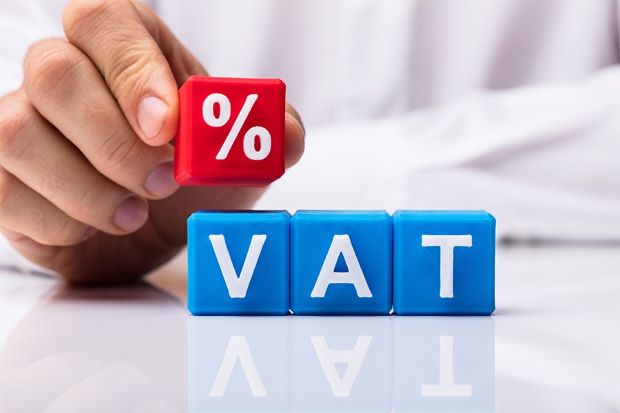COLOMBO – Sri Lanka will remove “almost all” exemptions from value added tax (VAT) keeping health, education and some foods, President Ranil Wickremesinghe said in presenting a budget for 2024.
The VAT rate will be increased to 18% as announced before.
“This brings Sri Lanka in line with regional peers including India and Pakistan, in terms of standard VAT rate,” President Wickremesinghe said.
Sri Lanka however has a cascading social security contribution levy (SSCL). Some analysts called for it to be folded into a 20% VAT simplifying the process.
“Once the resulting VAT collections enable overall tax targets to be met, it will be possible to phase out other indirect taxes such as the Social Security Contribution levy (SSCL) and rationalize the Special Commodity levy (SCL), which are distortive in nature,” the budget speech said.
As long as foods are exempt, VAT is a superior tax to income tax as it give people the freedom to spend and direct economic activities.
Income taxes are collected by the state before economic transactions that are essential for a recovery takes place.
VAT is also superior since any money from the informal or black economy generates tax as soon it is spent.
Sri Lanka is planning an ambitious increase in revenues with tighter tax administration in income taxes as well as removal of exemptions.
“The emphasis has been to maximize revenue from progressive direct taxes such as corporate and personal income taxes and to focus on a simple structure of a few core taxes, including VAT and core excises (tobacco, alcohol, fuel),” President Wickremesinghe said.
“With regard to personal income taxes, the tax structure was developed based on the official Household Income and Expenditure Survey data,” he said, adding “Accordingly, with a tax free threshold of Rs 100,000/month still only the top 20% of the Sri Lankan population are subject to personal income tax.
“It is very challenging for Sri Lankan authorities to negotiate with the IMF and creditors requesting tax reductions on the top 20% of the population within less than a year of formally commencing the IMF program.”
-ecnomynext.com



Comments are closed, but trackbacks and pingbacks are open.